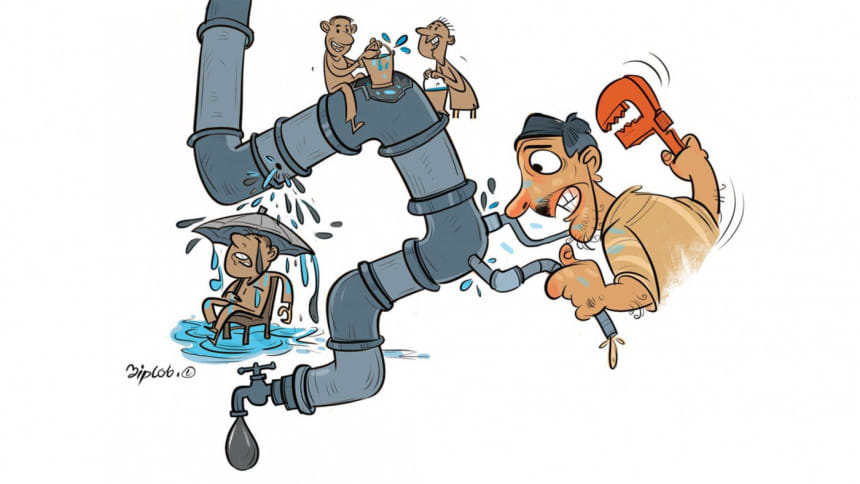Has Wasa water ever been safe to drink directly?

When the long-serving managing director of Dhaka Water Supply and Sewerage Authority (Wasa) assures us that the foul-smelling tap water at home is harmless, are we to take his words at face value? Can we really drink the Wasa water without any fear, no matter how murky it may look or how foul it may smell? His claims are in sharp contrast to our own investigations, which have revealed a disturbing correlation between Wasa water and cholera outbreak in 10 areas of the capital.
He attempted to comfort the media saying that the tap water in his residence at Naya Paltan might smell of excessive chlorine, but that it was still drinkable. Yet, he urged all Dhaka residents to boil Wasa water before drinking it. If he is so confident that Wasa water is drinkable, why should he suggest boiling it? Besides, why should city residents have to burn gas worth Tk 332.37 crore to purify Wasa water anyway, when it's Wasa's mandate to provide safe drinking water?
Wasa water looks dirty even with the naked eye—and numerous laboratory tests have confirmed the presence of germs and bacteria, including the ones that cause diarrhoea and cholera, in Wasa water. It baffles the mind to hear the Dhaka Wasa MD say with such confidence that no germs were found in the water in the city's 10 areas, from where most diarrhoea patients have visited various hospitals including the International Centre for Diarrhoeal Disease Research, Bangladesh (icddr,b).
Though the Wasa MD continues to deny the presence of harmful germs such as E. coli in the water collected from the pipelines and water tanks of houses, experts brush off his claim, terming it "baseless." Our reporters, after visiting many affected areas, found breaches in Dhaka Wasa's supply system to be the main reason behind the cholera outbreak. In many areas, residents are receiving water which is greenish-brown or yellowish and smelly, which suggests cross-contamination with sewage lines.
It is unacceptable that instead of acknowledging the severity of the problems and taking immediate steps to rectify them, the authorities are yet again in denial. This does not bode well for us, as we must continue to risk our health by drinking the contaminated water. We remember all too well a similar incident in 2019 when the Dhaka Wasa MD claimed that its water was safe for drinking, only to reject a glass of lemonade made with it by a concerned citizen! We hope it doesn't need another offering of greenish-brown water for the MD to finally admit Wasa's many shortcomings.

 For all latest news, follow The Daily Star's Google News channel.
For all latest news, follow The Daily Star's Google News channel. 


Comments